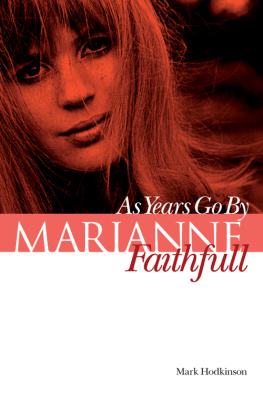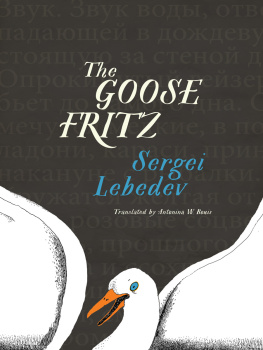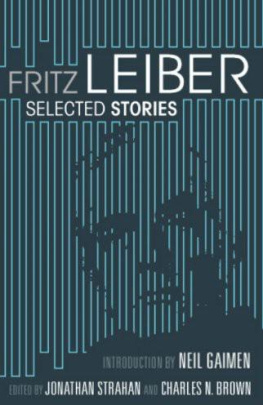Fritz Marianne - The Weight of Things
Here you can read online Fritz Marianne - The Weight of Things full text of the book (entire story) in english for free. Download pdf and epub, get meaning, cover and reviews about this ebook. year: 2015, publisher: Verso Books, genre: Art. Description of the work, (preface) as well as reviews are available. Best literature library LitArk.com created for fans of good reading and offers a wide selection of genres:
Romance novel
Science fiction
Adventure
Detective
Science
History
Home and family
Prose
Art
Politics
Computer
Non-fiction
Religion
Business
Children
Humor
Choose a favorite category and find really read worthwhile books. Enjoy immersion in the world of imagination, feel the emotions of the characters or learn something new for yourself, make an fascinating discovery.
- Book:The Weight of Things
- Author:
- Publisher:Verso Books
- Genre:
- Year:2015
- Rating:5 / 5
- Favourites:Add to favourites
- Your mark:
- 100
- 1
- 2
- 3
- 4
- 5
The Weight of Things: summary, description and annotation
We offer to read an annotation, description, summary or preface (depends on what the author of the book "The Weight of Things" wrote himself). If you haven't found the necessary information about the book — write in the comments, we will try to find it.
The Weight of Things — read online for free the complete book (whole text) full work
Below is the text of the book, divided by pages. System saving the place of the last page read, allows you to conveniently read the book "The Weight of Things" online for free, without having to search again every time where you left off. Put a bookmark, and you can go to the page where you finished reading at any time.
Font size:
Interval:
Bookmark:
Originally published in German as Die Schwerkraft der Verhltnisse
by S. Fischer Verlag, 1978
Copyright 1978 by Marianne Fritz
Translation and Afterword copyright 2015 by Adrian Nathan West
The Afterword was originally published in different form in Asymptote.
The publisher gratefully acknowledges the financial support received for this translation from the Austrian Ministry of Education, Arts, and Culture.
The publisher would also like to thank Jeremy M. Davies.
All rights reserved. No part of this book may be transmitted or reproduced in any manner or in any form without prior permission from the author or publisher.
ISBN: 978-0-9897607-7-5
Ebook ISBN: 978-0-9897607-8-2
Art on cover Hella van t Hof
Anonymous , 2014
13 18 cm
Embroidery on photo transfer
Design and composition by Danielle Dutton
Printed on permanent, durable, acid-free recycled paper in the United States of America
Dorothy, a publishing project
PO Box 300433
St. Louis, MO 63130
DOROTHYPROJECT.COM
MARIANNE FRITZ
TRANSLATED AND WITH AN AFTERWORD
BY ADRIAN NATHAN WEST
Many of the names in The Weight of Things have secondary meanings: Faust, Bertas maiden name, means fist , as well as recollecting Goethes famous play; Schrei, Wilhelms surname, means scream or cry ; Reichmann is analogous to Richman in English, and so on. The place-names are particularly significant: the town of Donaublau or Danube-blue invokes the waltz by Johann Strauss, and Allerseelengasse, where Berta was born, is named for All Souls Day, when the dead are mourned. We have elected to leave these proper names in the original to avoid giving the text a parodic tone that would stray from the sense of the original, where they are less obtrusive than they would be in English. There are also scattered allusions to literature and politics from the time of the books writing: when Berta and her children sing I know not what it means, this is the first line of Heinrich Heines Lorelei , and the Isle of the Blessed, a notion Wilhelm hits upon in describing his home country, was a favorite term of Chancellor Bruno Kreisky in his praises of Austrias alleged social harmony.
Of all the events of 1945, there was one Wilhelmine recalled with particularly painful clarity. Wilhelm had hung the necklace with the tiny Madonna around Bertas neck, not hers. This although Bertas belly clearly demonstrated that she, unlike Wilhelmine, was no longer a chaste young woman. For her own sakeand for Bertas!she ought to have spoken her mind. Maybe Berta had been good enough for Rudolf , but she certainly was never right for Wilhelm!
Rudolf is so gentle and indulgent. A born brooder. He needs a firm hand, someone with both feet on the ground. Hes a dreamer! His heads in the clouds! He needs a woman who knows what she wants! Berta, hes just not right for you.
If, when Berta had come to her, Wilhelmine had spoken words to this effect, would Berta have ever fallen for Rudolf?
Berta, you poor little fool! Couldnt you have found a better time for making babies? Rudolf might not even make it back from the front! And he couldnt slaughter a chicken, let alone raise a child! Too sensitive, too timid, never stuck his neck out for anything. Now hes gone off who-knows-where and the only thing you can think to do is have a kid! Berta! This is crazy!
If, when Berta had come to her, Wilhelmine had spoken words to this effect, would Rudolfs last furlough have produced such a tragedy?
If so, then Wilhelmines restraint was her own undoingfor Rudolf had indeed failed to return, and in his place came a stranger, Wilhelm Schrei, who handed Berta a daisy and a letter. She accepted both like precious jewels. So. So, Berta said. Not even a Thank you, sir. This stranger had trudged to Donaublau from Frankfurt on the Oder, in such treacherous times, no less, and all Berta had to say was: So. So.
Heaven knows, that was going too far! Wilhelm, the poor sap, just stood there without a clue what to say. And what did Berta Faust do? She just forgot him; sat down at the table, ran her hand over the tablecloth, trying to smooth it out; said again, So. So, and didnt even look up.
Thats how Berta Faust was. Never in the present moment; always with her mind somewhere else.
In her misfortune Berta was at least lucky enough to have herWilhelminearound. It was sheWilhelmine, and not Berta (!)who offered Wilhelm schnapps, ham, bread; luxuries that sometimes Bertas father and sometimes sheWilhelmine and not Berta (!)used to buy on the black market or from farmers. Wilhelmine let the plainly quite hungry young man eat in peace and asked questionsquestions that really Berta herself should have been askingonly once Wilhelm had stopped his frantic pawing at the ham and bread.
All right. Rudolfs left us. That must have happened to a lot of people. At least tell us: how did he go? Was it over quick, or did it drag on?
The poor fool was naturally so daunted and perplexed by Bertas thoroughly inhospitable silence that he hemmed and hawed, refusing to speak of such things, though this was the perfect time to sort them out once and for all.
No, Berta showed not the least consideration for that weary soldier. In the end, Wilhelmine even had to do Bertas grieving for her.
The poor, poor dears! They were made for each other! And thats not all: a baby on the way, no husband in the house. Such a mess! What hope is there for a pregnant woman stuck living with her fatheran old gravedigger to boot! The women in your family have always been blessed with useless men, Berta, but this Rudolf of yours has topped them all! Its enough to make you jump out of your skin. Berta, say something!
Berta giggled and said: So. So.
Whats so funny? Wilhelmine hissed at Berta. Then she turned back to Wilhelm: Karl was undoubtedly the most respectable of the three Faust boys. But theres been no word from him since this May. We did at least find out hed been laid up in the military hospital in Castelfranco, which is somewhere near Modena. Richard, his twin brother, wasnt much of a letter writer either. After March of 1944, not a single word. Upper Silesia isnt even that far. Youd think he could at least have gotten away for a few days leave! And then Wastl, Wastl clean forgot he even had a mother and sister back in Donaublau waiting for word from him. Wastl in Grajewo, Karl somewhere near Modena, Richard in Upper Silesiathats all we ever knew. You call that staying in touch? They could at least have sent a letter home with someone, dont you think? In case they didnt make it? Shouldnt they have thought of that? Berta, say something!
Berta kept silent.
No. This cant go on. Someone needs to do something. Whats your story, sir? Are you planning on staying in Donaublau, then? Nowadays all the cities look more or less the same. A heap of rubble is a heap of rubble no matter where you go. Nowadays everyone has to start from scratch. The Faust boys used to sleep in the next room. That means weve got three empty beds, two dressers, a table, and three chairswill that do for you? And Wilhelmine stared at Wilhelm expectantly.
Wilhelm stayed. Yet it was not until the 13th of January, 1960 that the ringthe obligatory wedding ring Wilhelm had properly owed to Wilhelmine from that very first day forwardthat Wilhelm at last placed this ring on her finger. Still, she at least got it in the end.
But the necklace with the tiny Madonnathat remained with Berta.
The degree to which the necklace with the tiny Madonna had become an object of Wilhelmines ambitions was something Wilhelm had never understood. Over time, he even forgot there ever was a necklace with a tiny Madonna.
Font size:
Interval:
Bookmark:
Similar books «The Weight of Things»
Look at similar books to The Weight of Things. We have selected literature similar in name and meaning in the hope of providing readers with more options to find new, interesting, not yet read works.
Discussion, reviews of the book The Weight of Things and just readers' own opinions. Leave your comments, write what you think about the work, its meaning or the main characters. Specify what exactly you liked and what you didn't like, and why you think so.













